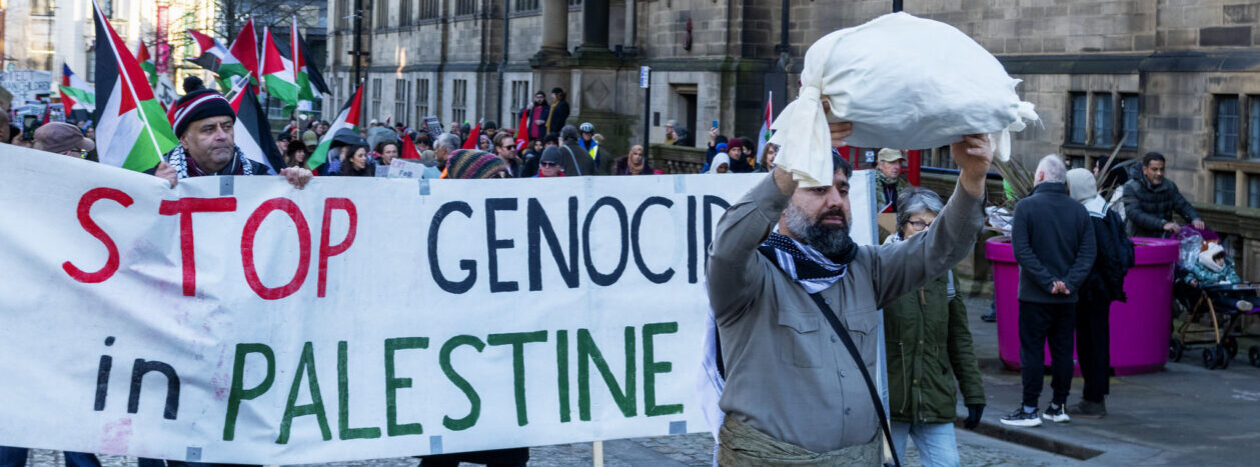Kholoud Al-Ajarma of Aida refugee camp, Bethlehem
TODAY Palestinians are the largest and longest-suffering group of refugees in the world, numbering 10 million worldwide.
For the past 67 years, Israel has denied Palestinians most of their basic rights as human beings, including their right to return to their original towns, villages and homes.
I was born and raised in Aida refugee camp in Bethlehem as a third-generation Palestinian refugee. In Aida, as well as other places in Palestine, Palestinians suffer from the ongoing colonisation of our lands and the systematic violations of our rights by the Israeli occupation.
I am incredibly excited to be in England and I was especially delighted by the generosity and solidarity of the Northern Women for Palestine. Being in England, however, reminds me of the differences between England and Palestine. Whereas I can travel freely here after travelling more than 3,000km, I cannot travel to Jerusalem, just 7km from Aida.
I enjoy the green countryside here but I keep thinking of the thousands of Palestinians whose lands are being confiscated by the Israeli occupation. I can drink and use clean water while my people have very limited access to water because of the Israeli control over water resources; some people have no water in their houses for weeks in Aida.
I feel safe in the places I visit in England but I remember that Palestinians are being arrested and imprisoned without charge or trial and that our houses are being invaded and searched. I enjoy fresh air when the people of Aida are being tear-gassed by the Israeli army on a daily basis when the camp is invaded.
I feel thankful that I came to England in 2012 to participate in International Women’s Day events that were arranged by the Northern Women for Palestine, and it was here that I met my best friends: Zayneb from Hebron, Kholood from Nazareth and Sameeha from Gaza. We all live within the borders of historic Palestine but we cannot unite on Palestine’s soil because of the Israeli colonisation.
Despite all the discriminatory actions against them, Palestinians continue to struggle for their basic rights. In Aida, and everywhere I go in Palestine, I witness examples of the true spirit of sumud (steadfastness) and resilience.
Although Aida is invaded almost daily and Israeli army attacks continue, hundreds of children go to schools, play football and learn Palestinian songs and dance.
Despite Aida being very crowded and having no green spaces, refugees make gardens on the roofs of their houses to maintain their attachment to the land, which has never ceased.
Even though young people are being arrested and targeted by Israeli soldiers, they continue to go to their schools and universities believing that education is one of Palestine’s most important assets.
All over historic Palestine and in exile, Palestinians continue to preserve culture and traditions — Palestinian traditional embroidery, traditional dance (dabka), and Palestinian food are all part of our history. Safeguarding them and passing their importance from one generation to the next is an integral part our popular resistance.
